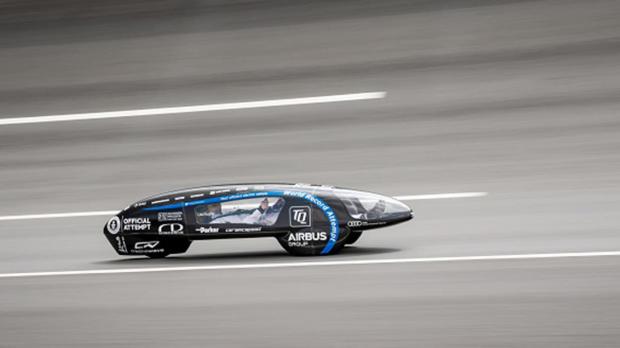
Breaking News
 Shocking Email From Epstein Files Implicates Former US Ambassador, Clintons, Bidens,...
Shocking Email From Epstein Files Implicates Former US Ambassador, Clintons, Bidens,...
 Episode 490 - The 9th Annual Fake News Awards
Episode 490 - The 9th Annual Fake News Awards
 Epstein Files Dump, Gov't Shuts Down, Trump ROASTS Don Lemon...
Epstein Files Dump, Gov't Shuts Down, Trump ROASTS Don Lemon...
 SILVER MASSACRE: The Crash Reveals CME-Shanghai Coordination (Bullish Signal)
SILVER MASSACRE: The Crash Reveals CME-Shanghai Coordination (Bullish Signal)
Top Tech News
 Critical Linux Warning: 800,000 Devices Are EXPOSED
Critical Linux Warning: 800,000 Devices Are EXPOSED
 'Brave New World': IVF Company's Eugenics Tool Lets Couples Pick 'Best' Baby, Di
'Brave New World': IVF Company's Eugenics Tool Lets Couples Pick 'Best' Baby, Di
 The smartphone just fired a warning shot at the camera industry.
The smartphone just fired a warning shot at the camera industry.
 A revolutionary breakthrough in dental science is changing how we fight tooth decay
A revolutionary breakthrough in dental science is changing how we fight tooth decay
 Docan Energy "Panda": 32kWh for $2,530!
Docan Energy "Panda": 32kWh for $2,530!
 Rugged phone with multi-day battery life doubles as a 1080p projector
Rugged phone with multi-day battery life doubles as a 1080p projector
 4 Sisters Invent Electric Tractor with Mom and Dad and it's Selling in 5 Countries
4 Sisters Invent Electric Tractor with Mom and Dad and it's Selling in 5 Countries
 Lab–grown LIFE takes a major step forward – as scientists use AI to create a virus never seen be
Lab–grown LIFE takes a major step forward – as scientists use AI to create a virus never seen be
 New Electric 'Donut Motor' Makes 856 HP but Weighs Just 88 Pounds
New Electric 'Donut Motor' Makes 856 HP but Weighs Just 88 Pounds
 Donut Lab Says It Cracked Solid-State Batteries. Experts Have Questions.
Donut Lab Says It Cracked Solid-State Batteries. Experts Have Questions.
World's most efficient EV could cover 11,000 km on energy equivalent to 1L of gas

The car chosen to topple the Guinness World Record was a modified TUfast eLi14, initially created for the 2014 Shell Eco Marathon. In search of even more efficiency, the motor was upgraded with a custom controller, revised magnet placement and silver wire coils. Meanwhile, the original rims made way for a new set, accompanied by ultra-low friction bearings.
After fixing a few minor issues on the installation lap, the team managed an average energy use of 1142 km/kWh (710 mi/kWh). Having banked one run, the team tweaked the speed controller and tire pressure in search of more.
What they got was 1232 km/kWh (765.53 mi/kWh). That's the equivalent of about 0.009l/100km (26,135 US mpg), which would theoretically allow the car to cover 10,956 km (6808 mi) on just one liter of 95 RON petrol.
The team behind this flying teardrop is made up of students and alumni from the Technical University of Munich. TUfast cars have been regulars in the Shell Eco Marathon since 2011, while the team's sister group competes in the combustion and electric categories at Formula Student each year.



